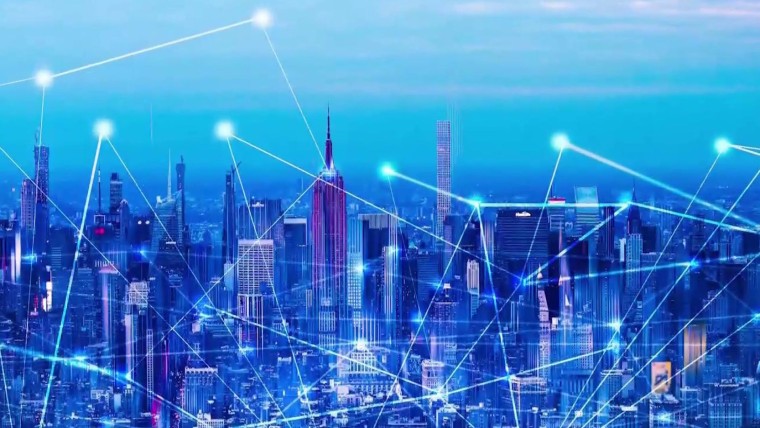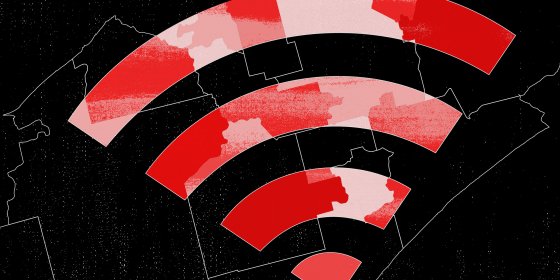An explosive report from nonprofit journalism outlet The Markup analyzed data on internet speeds and pricing in 38 U.S. cities and found that AT&T, Verizon, EarthLink and CenturyLink all disproportionately offered lower-income and less-white neighborhoods slower internet for the same price that nearby whiter, wealthier neighborhoods paid for faster speeds. Discriminating against those communities by charging them more for the internet is digital redlining, and it’s yet another example of the technology and telecommunications industry’s ability to entrench and amplify social inequities.
The pandemic has shown us how absolutely critical internet access is, especially for already vulnerable communities.
The pandemic has shown us how absolutely critical internet access is, especially for already vulnerable communities, and the government needs to step up and do more to eliminate the digital divide and to prevent and solve for the harms of digital discrimination. The Federal Communications Commission is the agency best poised to create and enforce rules on this matter, and the agency promised to look into this exact issue earlier this year.
Historically, redlining refers to a now-illegal practice in which banks would refuse mortgages to poor areas or areas with more Black or brown people. Digital redlining is a newer, technologically driven form of discrimination that results in companies providing better services to people with more wealth or who live in whiter areas. The Markup’s report found that the telecom companies were engaging in discriminatory practices that actually mapped pretty closely to historical redlining.
According to The Markup’s report, “None of the providers denied charging the same fee for vastly different internet speeds to different neighborhoods in the same cities. But they said their intentions were not to discriminate against communities of color and that there were other factors to consider.”

On behalf of Verizon, the industry group USTelecom told The Markup that the equipment for slower-speed internet comes with higher maintenance costs. Without elaboration, a spokesperson for CenturyLink's parent company called the report “deeply flawed.” EarthLink, which doesn’t own internet infrastructure in the examined cities but rather rents capacity from other providers, did not provide an official comment despite repeated requests. An AT&T spokesman called the analysis “fundamentally flawed” because, he said, the publication “clearly ignored our participation in the federal Affordable Connectivity Program and our low-cost Access by AT&T service offerings.” The Markup reported that only about a third of eligible households in 30 major cities had signed up for the federal connectivity program, according to recent research, and that most who have signed up use it to lower their cellphone bill.
Such digital redlining shows us why clearer regulation is needed for the internet industry. We need practical, on-the-ground policies that will make sure telecom companies give all individuals equal access. While the Biden administration has taken steps to work on this issue, more needs to be done.
This controversy is another reminder that we need commonsense regulations to protect against digital discrimination in the telecom industry and in the tech industry as a whole. In February, FCC Chairwoman Jessica Rosenworcel announced the formation of a task force to tackle digital discrimination, and the commission has initiated an inquiry into the problem of how it can best prevent digital discrimination. The intent is to launch new rule-making under the legal authority of the 2021 infrastructure bill. This would allow the FCC to create a new regulation that would target digital discrimination.
This controversy is another reminder that we need commonsense regulations to protect against digital discrimination in the telecom industry and in the tech industry as a whole.
While it is a positive that the FCC is taking charge to fix this problem, the agency’s efforts have arguably been hampered by the fact that the agency is still operating without its full number of commissioners. Republicans have refused to confirm Gigi Sohn, whom President Joe Biden first nominated to fill the fifth FCC commissioner slot about a year ago. Sohn is a well-known expert in technology and communications policy, and about 250 civil society groups recently signed onto a letter supporting her confirmation. It is far beyond time to resolve partisan differences and confirm Sohn’s nomination.
The internet is not a passing fad or a new trendy technology. The internet is a fundamental part of all of our lives. We need the internet for work, for education, for access to health and government services, for entertainment, for social connection and more. The internet is not only vital for free speech and expression, but it is also an integral tool to allow all individuals to participate in building our democratic culture together.
Given the increasing importance of the internet, digital discrimination is not just a minor business problem that can be easily forgotten or smoothed over. We need practical, tangible regulation that will actually have bite. It is critical that Congress move past lobbyist gridlock to confirm Sohn. This would give the FCC some much-needed momentum to shape and enforce new regulations to protect all of our rights.
Digital discrimination is a civil rights violation and should be treated as such. Until the day comes that we do have strong laws that protect internet access as a civil right, we will need to continue speaking up and shedding light on discrimination and inequity. We all deserve access to the internet; historically neglected communities shouldn’t be priced out or deal with the indignity of seeing historically advantaged communities pay less.

